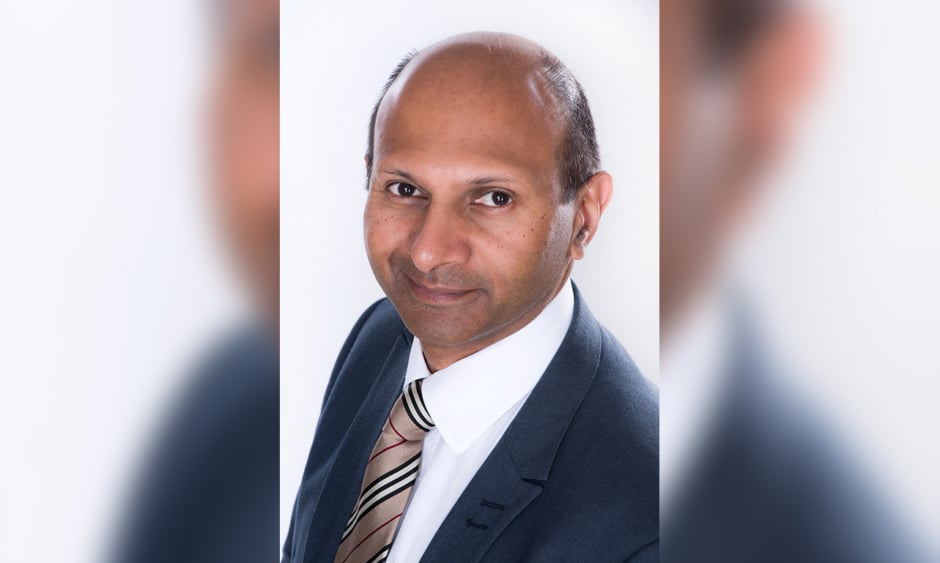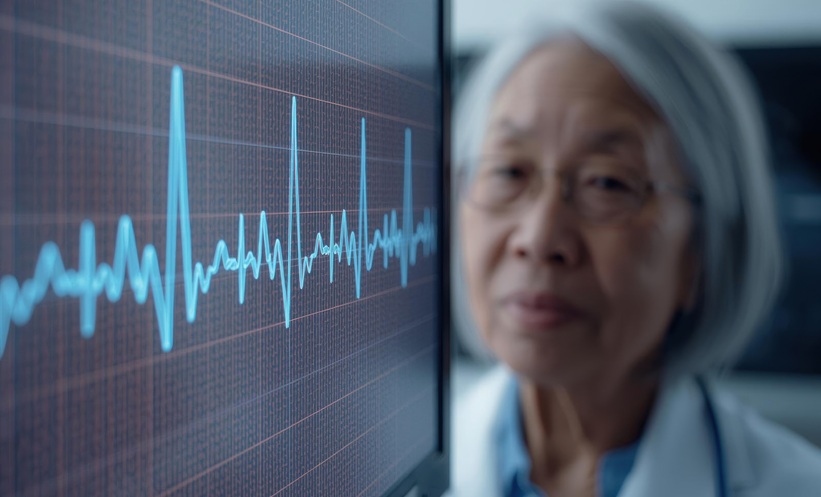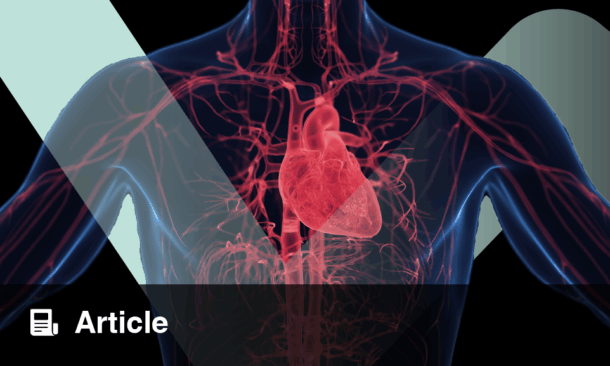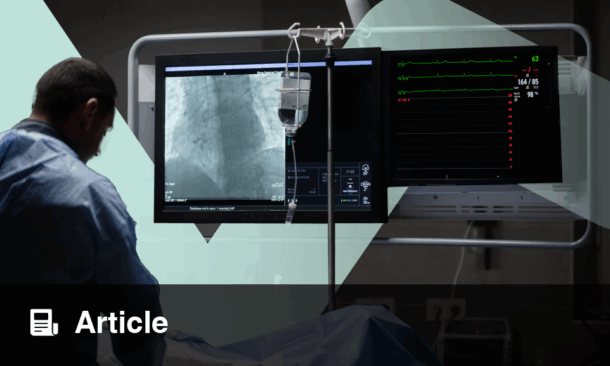Professor Kiran Patel | Chief Medical Officer and Consultant Cardiologist at University Hospitals Coventry and Warwickshire, Coventry, UK
![]()
Having managed significant advancements in cardiac services, how have you seen complex cardiac devices develop during your career?
I guess there have been two significant advances in the field of device therapy while I have been practising. Firstly, the advent of complex device therapy (implantable cardioverter-defibrillator [ICD] and cardiac resynchronisation therapy [CRT]) which has really transformed the care of very sick patients. Secondly, the advent of remote monitoring has been, and will continue to be, a positive innovation in that we will now deliver more-frequent monitoring and commensurately improve patient safety, with better convenience for patients and commensurate economic and green benefits, including less time off work and less travel to hospitals.
How have you acquired the leadership skills to perform your role as Chief Medical Officer (CMO) at University Hospitals Coventry and Warwickshire? What, in your opinion, is the greatest challenge of this role?
There are no specific training courses or accreditation programmes which suddenly make one able to become a CMO. Personally, I think that becoming a CMO is a combination of opportunity, desire, and capability. All of the leadership roles I have had to date have been learning and developmental experiences which I use in my current role. I have held a few leadership roles within cardiology which have helped, and have also held regional clinical and medical director roles which helped me to gain experience strategically and in terms of policy. Overall, I have managed to gain experience in primary care, secondary care, and in the regulatory system, so all of that experience in combination is extremely helpful in my current University Hospitals Coventry and Warwickshire (UHCW) CMO role which also comes with a system leadership role of Sustainability and Transformation Plans (STP) clinical lead.
The work that you have carried out with UK universities to advise governments in Thailand and Indonesia has been extremely valuable in strengthening their healthcare systems. Why is it so important to drive international collaboration in this way, and why are you so passionate about this project?
In the UK, we are fortunate enough to have a universal healthcare system, free at the point of need. However, not all of the world’s citizens are as fortunate.I believe we have a moral and ethical responsibility to help develop health systems across the world and to share our challenges and experiences. International work is therefore important to me, as we are all more similar than we are different across the world, we just happen to have arrived in different places. At UHCW where I work, we have an ambition to be an international leader in healthcare and have partnerships across the globe so that we can share learning and develop together with other health systems.
Another project of yours is to improve workforce development in the UK’s healthcare system. Currently, what are the most pressing issues for quality improvement in the National Health Service?
The main source of expenditure in the National Health Service (NHS) is on workforce, and it is the NHS workforce which is responsible for delivering excellent care. We therefore need to ensure we are a learning health system, which means that our workforce is also continually learning and developing to keep up with patient demand and to deliver care at the frontiers of medical innovation and development. We also need to transform in order to make healthcare more affordable, and innovate. One example I can give you is that in my last job I trained a nurse to implant pacemakers, thereby performing procedures which traditionally, and in most places, a doctor would do. I see no reason why role substitution like that cannot help us to deliver a safe and effective service, while at the same time release highly skilled and expensive medical staff to do the more complex things. Applying this across the workforce will enable us to deliver a greater breadth and depth of services which our patients deserve. There are many challenges in delivering a quality service and key to that is measurement, data, and feedback. We need to have a better and more real-time view on quality-related data so that we can measure what we do and then improve it. It’s not ideal waiting over a year sometimes to see audit data to respond to; we can do better than that.
We saw you in the BBC Panorama documentary “On the NHS Frontline.” What is the significance of documentaries such as these for raising awareness, particularly in this current crisis?
We were cautious about opening our doors to the outside world but, in hindsight, it served two purposes. For patients and carers, it was a window into seeing how we function as a hospital at a time of crisis, and I hope that viewers saw how organised and calm the organisation was while delivering a busy service which remained compassionate. Secondly, for our staff, it was great to be recognised for the great care we deliver. Everyone I have spoken to in the Trust has felt really proud of being in the public eye and I too think it’s a great organisation to work in.
The NHS is focussed on combatting coronavirus and nonurgent procedures have been postponed or cancelled to maximise capacity for treating patients with COVID-19. What are the dangers of this?
So, we did have a pause on elective care for a few weeks, but we are rapidly starting to deliver elective care again based upon clinical need, as are most organisations across the NHS. We are delivering most of our cancer care now, and also starting cardiac surgery and cardiology procedures too. One concern we have is that the number of patients presenting with acute conditions such as heart attacks and strokes dropped off for several weeks, suggesting that patients were avoiding coming to hospital when they needed care. We have therefore undertaken a lot of public communication articulating that we are open for business as usual, to deliver care if patients need it and, fortunately, things are getting back to how they were. Yesterday we had returned to seeing the same number of ambulances as normal which is good news.
In the documentary, you stated that routine procedures which should take 15–20 minutes are now taking up to 1 hour to complete. How is this affecting workflow?
Having to don and doff personal protective equipment (PPE) for some cases now means that all staff, not just the operators, take longer to prepare for procedures, and after procedures sometimes the need for cleaning takes a while.
Therefore, overall productivity has decreased during the COVID-19 era. Now that we have ‘green’ pathways where, effectively, we have a hospital within a hospital, things are a lot more efficient as patients for elective procedures are screened for COVID-19 and, if negative, have an end-to-end pathway where risk of nosocomial exposure to COVID-19 is very low. Our hospital is effectively divided so that we have an entrance, corridor, ward, theatres, and cardiac catheterisation lab which are physically separate and staffed by COVID-negative staff. I think this complex era of operational management, for the benefit of patients until we are back in a safe era, will continue for several months yet.
What are your coping mechanisms for dealing with the magnitude of the crisis and how do you advise medical students and junior doctors to deal with this?
It is really important to maintain one’s own physical and mental health. I tend to go for a long run once a week and use my home gym equipment. I try to have a separation of work and home so that I try not to get onto emails when I’m at home. That said, it has been an incredibly busy few months, preparing for and managing the impact of the pandemic. My advice to all staff is that this is a marathon not a sprint so, in addition to personal resilience, ensure you are part of a team which supports each other. Everyone will have ups and downs so mutual support is essential. Take regular breaks too. I have been fortunate in that I have a great clinical team in cardiology and a great executive team. One of the best things we have had here is a daily 8:30AM meeting of myself as CMO, the Chief Nursing Officer, Chief Operating Officer, and Chief Executive. A focussed half-hour (with plenty of caffeine) starts each day, which has been really important not just to focus and co-ordinate, but to support each other too. We then have the usual gold, silver, and bronze command management structure to manage the incident, so it has been an impressively slick machine in action since mid-January and a great experience.
The documentary highlighted the indispensable need for multidisciplinary units in the hospital. What more can be done to support the many key workers ‘on the frontline’?
Teamwork has been key throughout the pandemic. We all need to support each other, both clinically and managerially. In addition, it has been fantastic to see how professional, flexible, and adaptable staff have been. We have had staff working in other teams and in other departments, with the appropriate training and induction of course. We have even had medical students working within our teams and overall, it has been a very positive experience for most staff.








